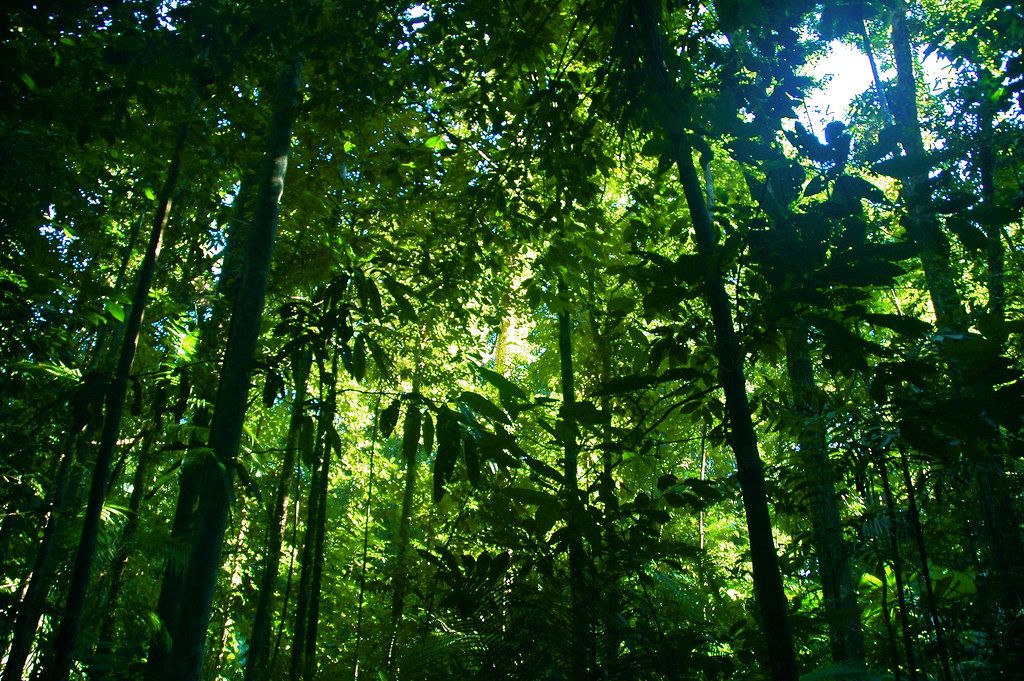Can palm oil consumption ever be ethical?
Palm oil production is one of the leading causes of deforestation in Malaysia and Indonesia, destroying wildlife habitat, threatening the homes of endangered animals and displacing local people.
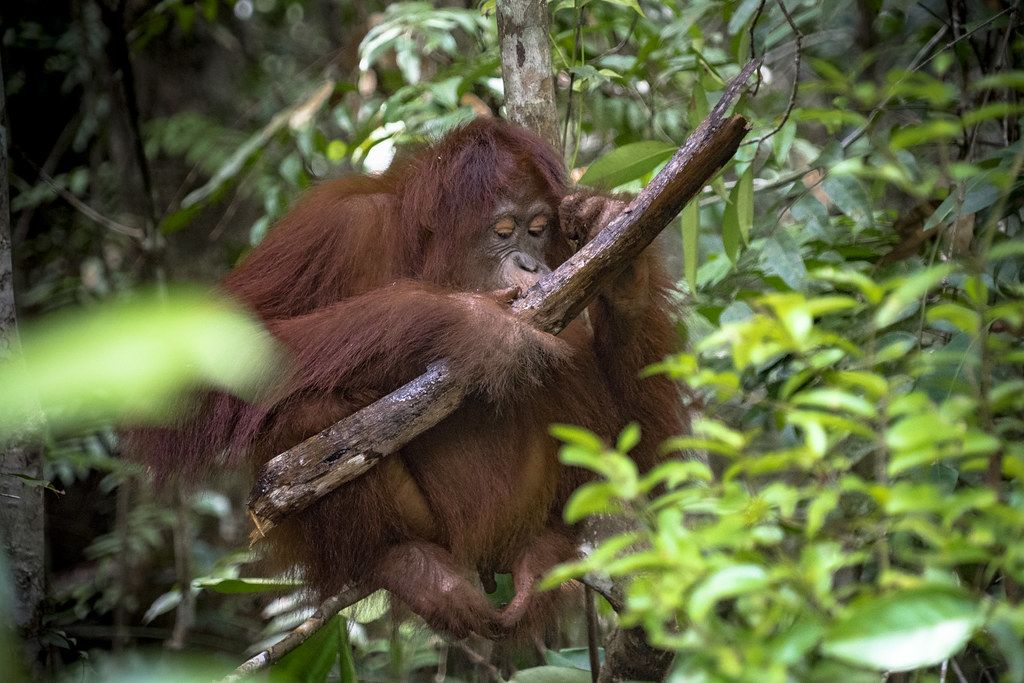
One of the animals most harshly affected by palm oil production is the orangutan.
Orangutans live in rainforests, and spend most of their time in trees. They share 96.4 per cent of the same genes as humans and are known for their intelligence. Indonesia and Malaysia account for 90 per cent of the world’s palm oil production. They are also home to the world’s orangutan population.
Deforestation is the biggest threat to the survival of this species. Most of the large-scale land clearing operations in Indonesia and Malaysia are undertaken to establish palm oil plantations, making palm oil the biggest contributor to the population decline of orangutans.
Despite being classified as endangered, experts say that orangutans could be extinct within the next twenty years unless immediate and firm action is taken to conserve the species.
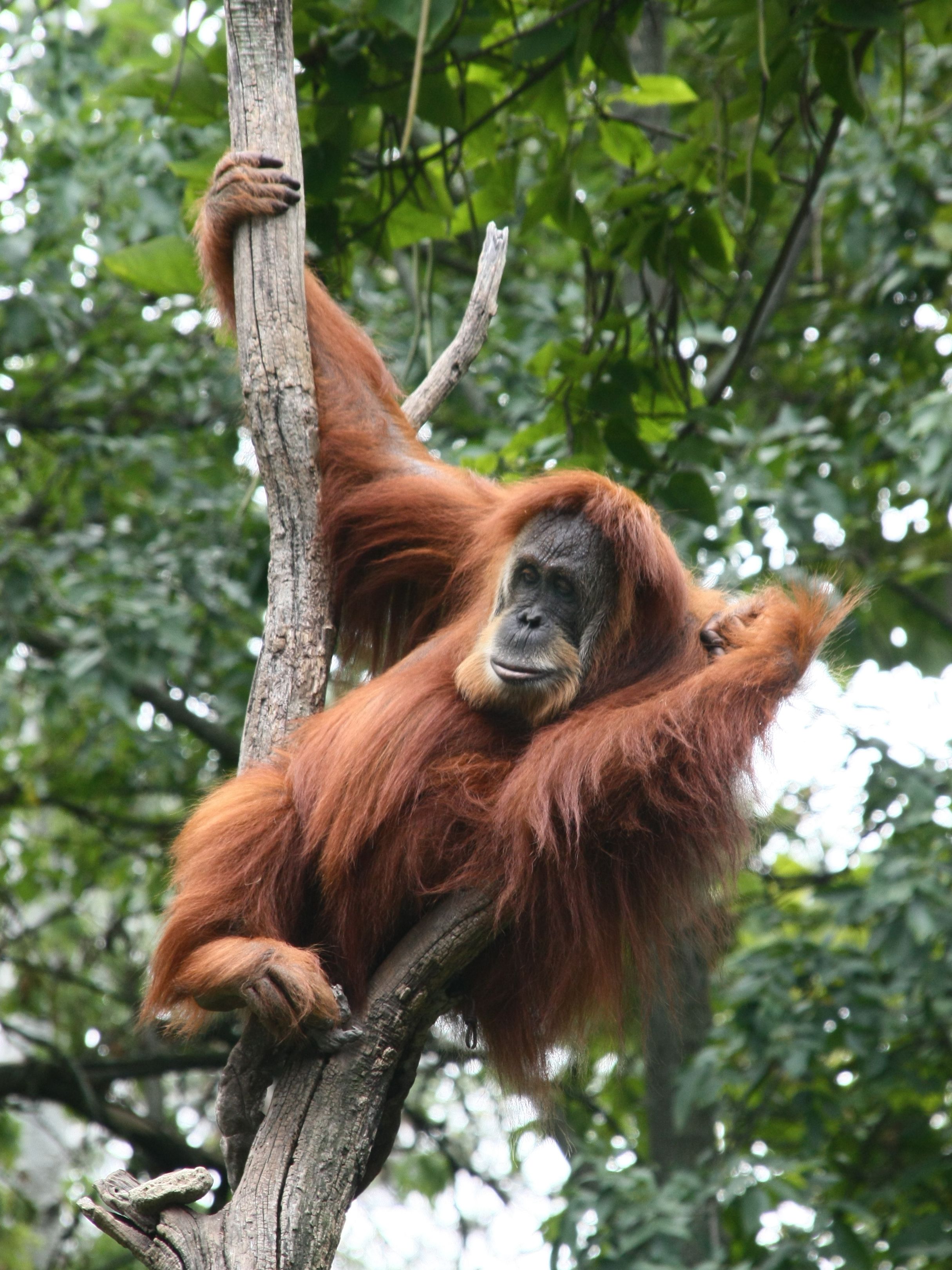
BORNEO
Borneo is at the centre of this debate. The island, which is shared by Malaysia and Indonesia, is home to the critically endangered Bornean Orangutan.
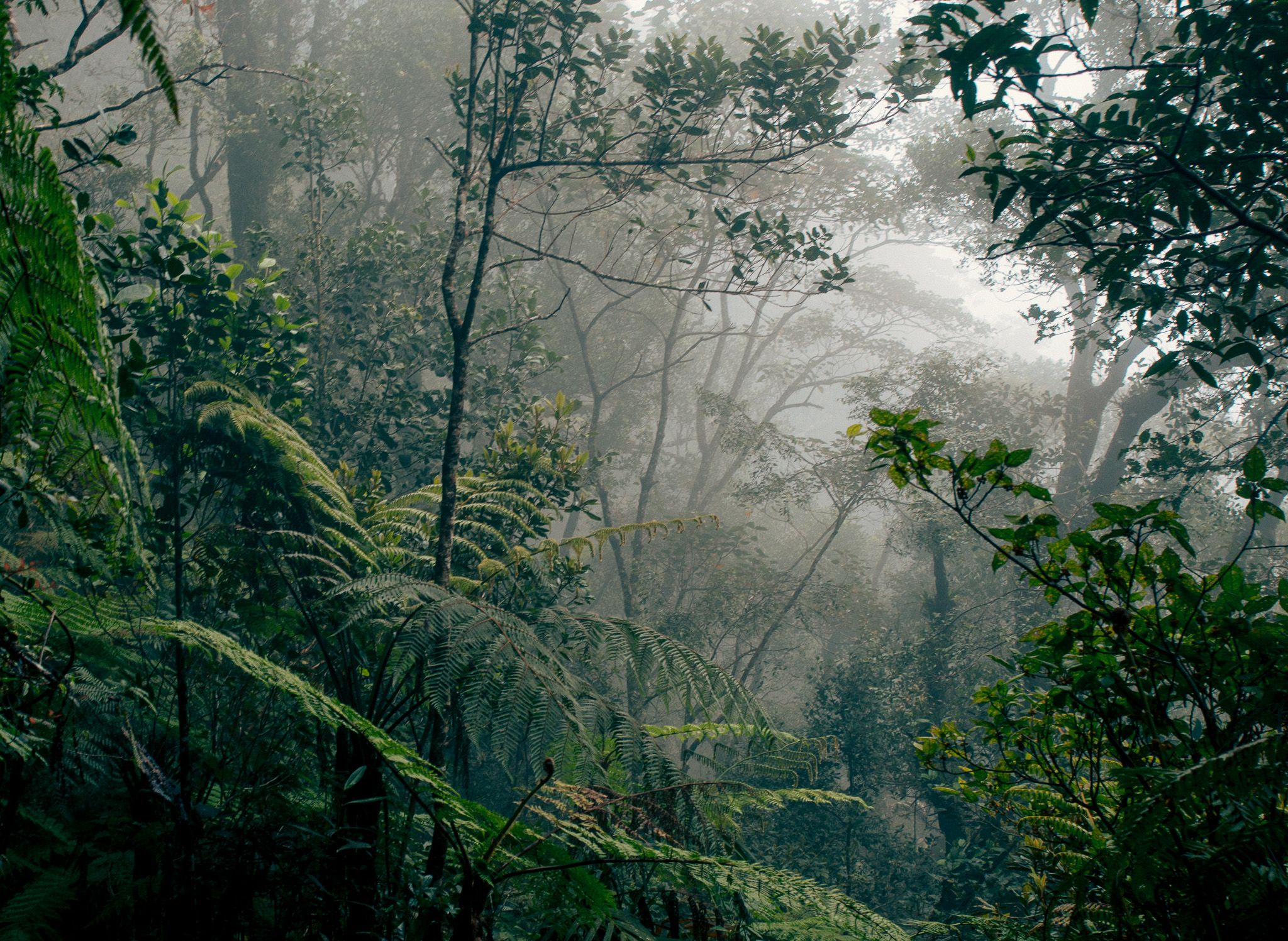
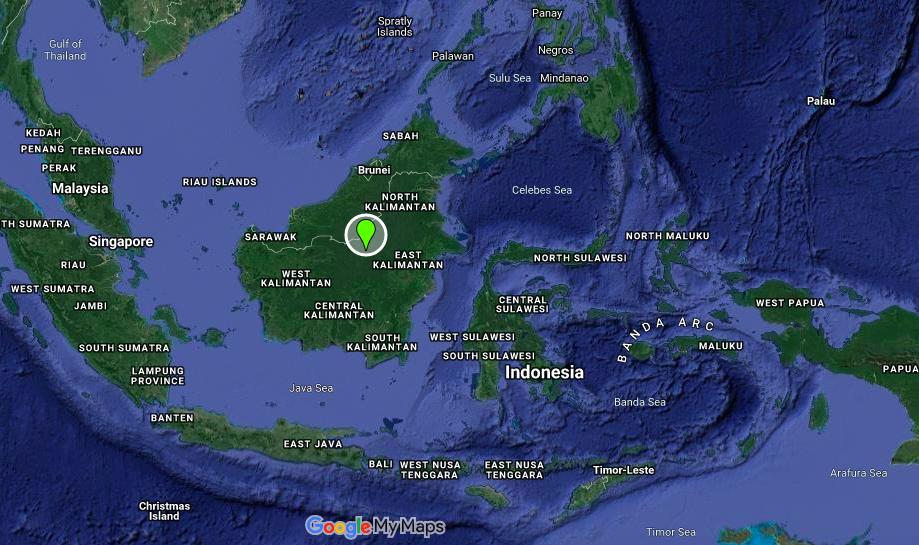
Source: Google My Maps
Source: Google My Maps
Borneo is facing a dire situation. About 50% of the orangutans on the island have been killed or removed since 1999. Researchers predict that the number of deaths will continue to increase into the future.
Most threatened is the Tapanuli Orangutan, with only about 800 individuals remaining. They can be found in Indonesia. The Northwest Bornean Orangutans are also at risk, with only 1500 remaining after years of their habitat being destroyed for land clearing.
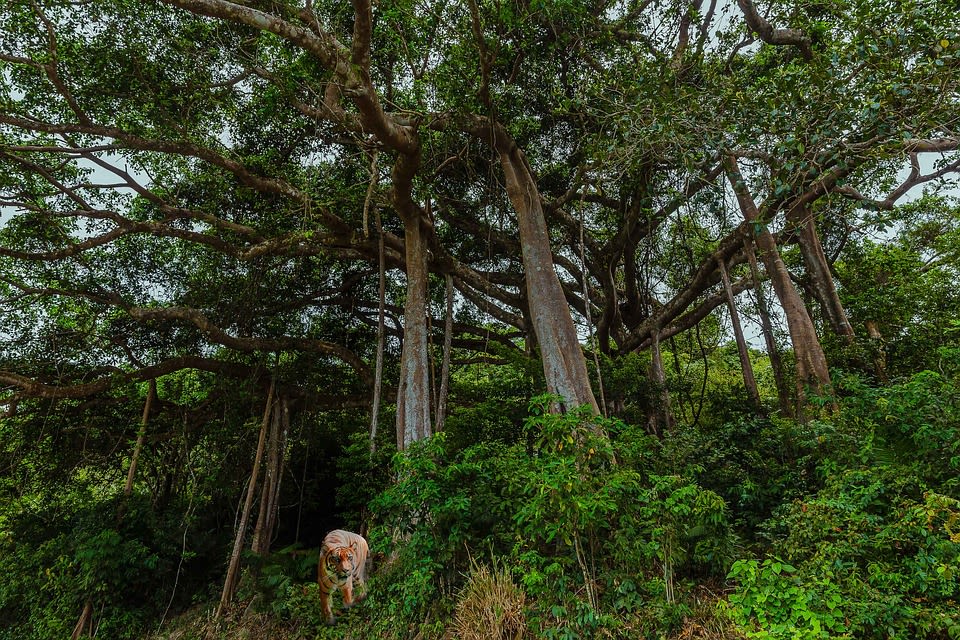
Data from Global Forest Watch (Google Earth Pro used for mapping points)
Data from Global Forest Watch (Google Earth Pro used for mapping points)
In the video, the plotted points represent the location of palm oil mills in Indonesia and Malaysia.
The following images show an aerial view of Borneo from 1986 to 2016 captured by Google Earth. There is a stark contrast in the density of tree-cover.
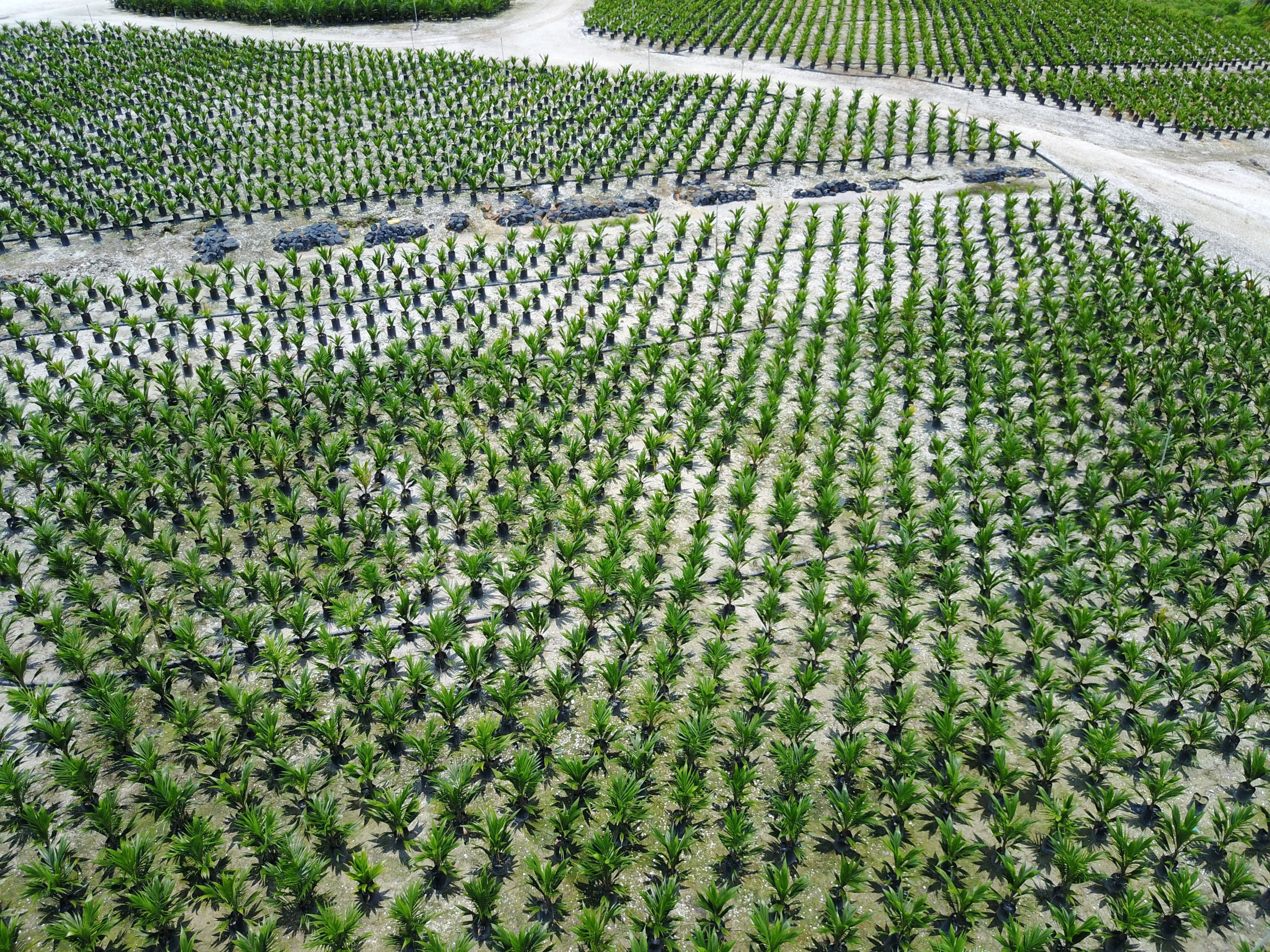
PRODUCTION
Experts have made it clear that orangutans will become extinct if action is not taken fast to conserve the species. Yet data shows that production of palm oil is at an all time high in both Malaysia and Indonesia.
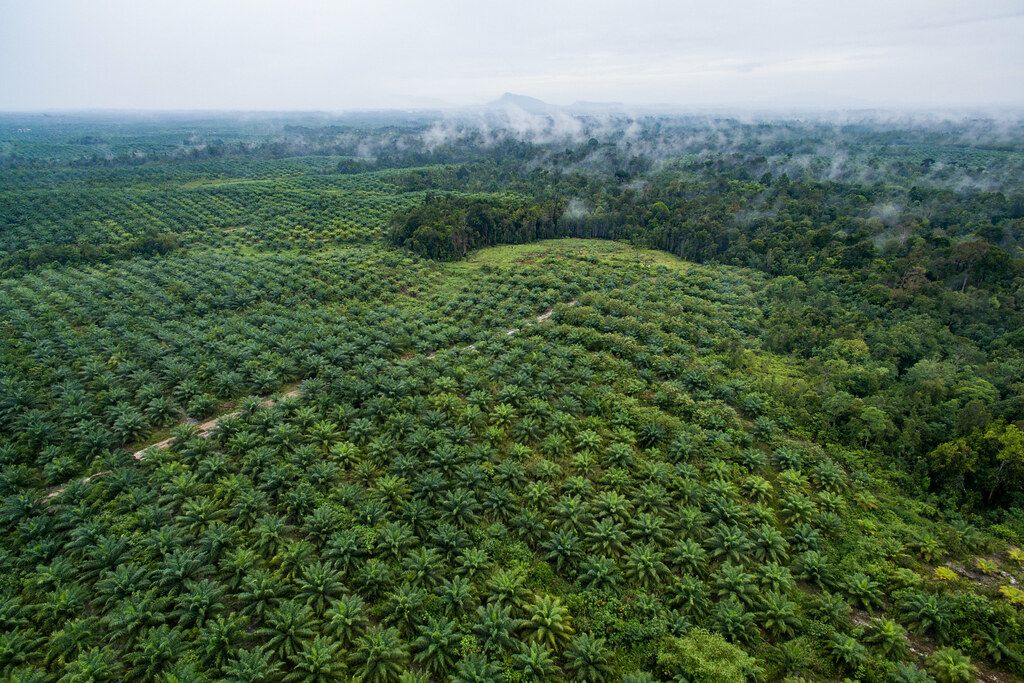
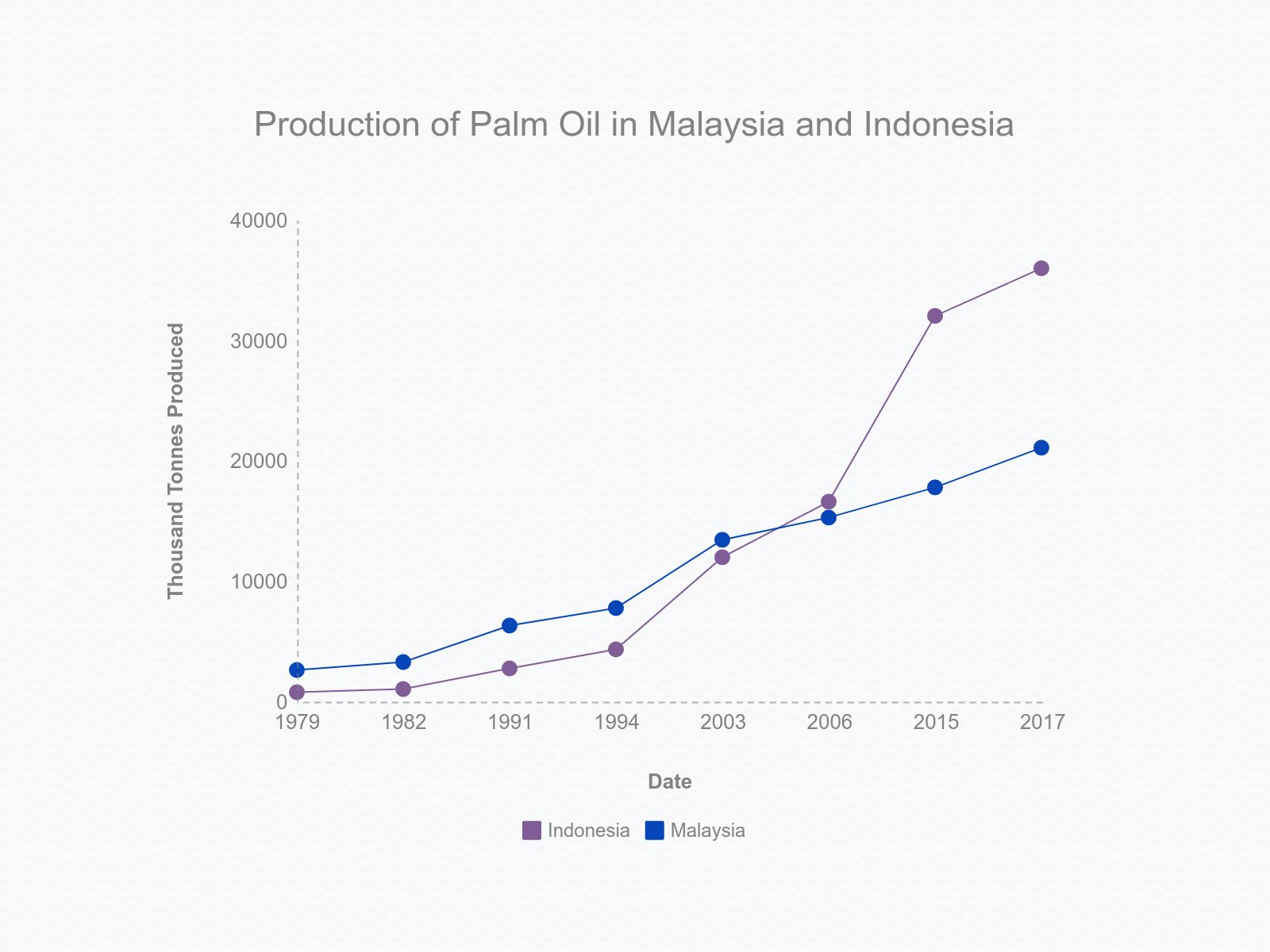
Data from US Department of Agriculture
Data from US Department of Agriculture
Palm Oil in Australia
The levels of palm oil consumption in Australia are predicted to further incline to the highest they have ever been in the upcoming three years. This prediction is based on data from the US Department of Agriculture.

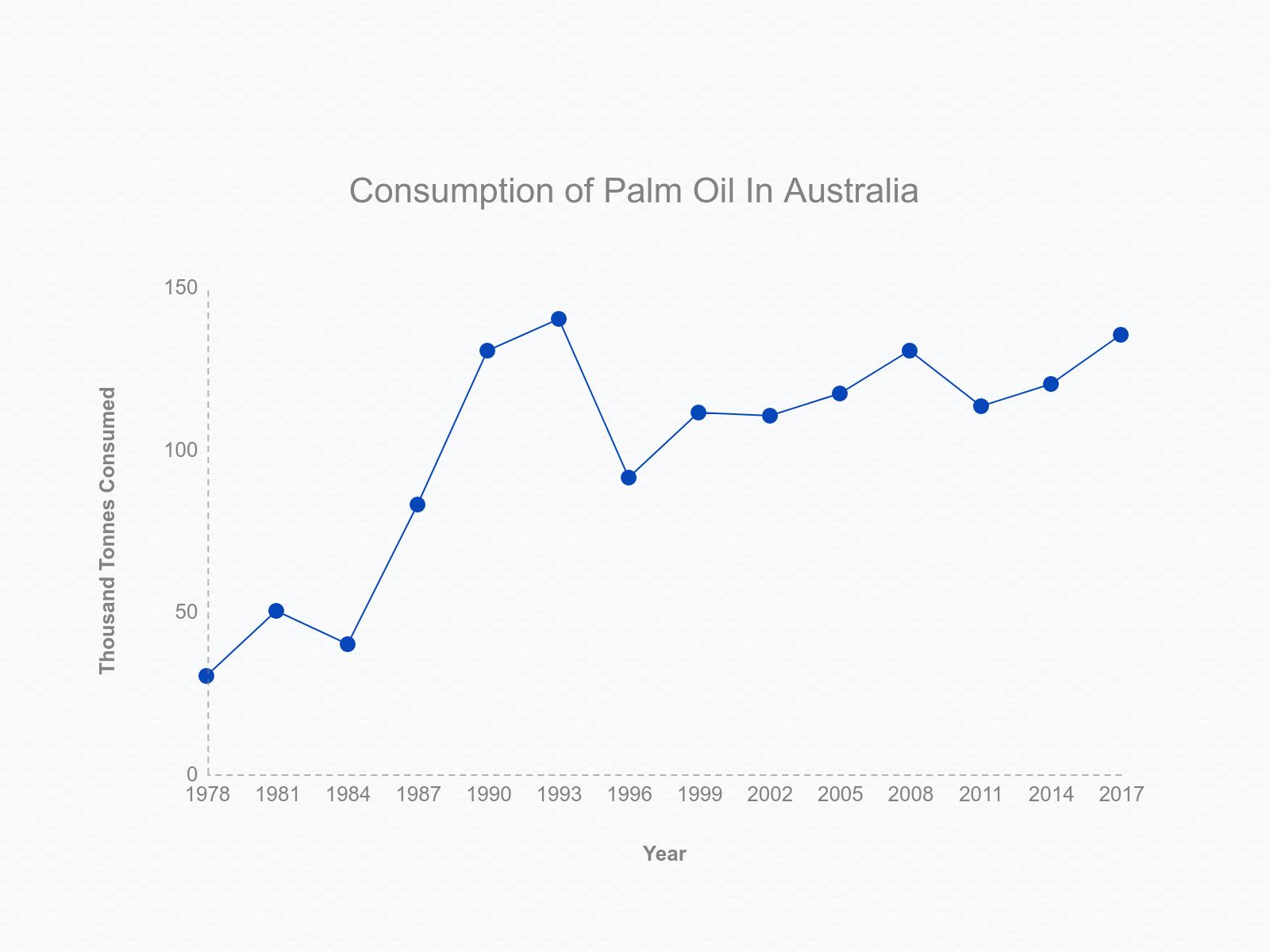
Data from US Department of Agriculture
Data from US Department of Agriculture
IF PALM OIL IS SO DAMAGING TO THE ENVIRONMENT, WHY IS IT STILL USED?
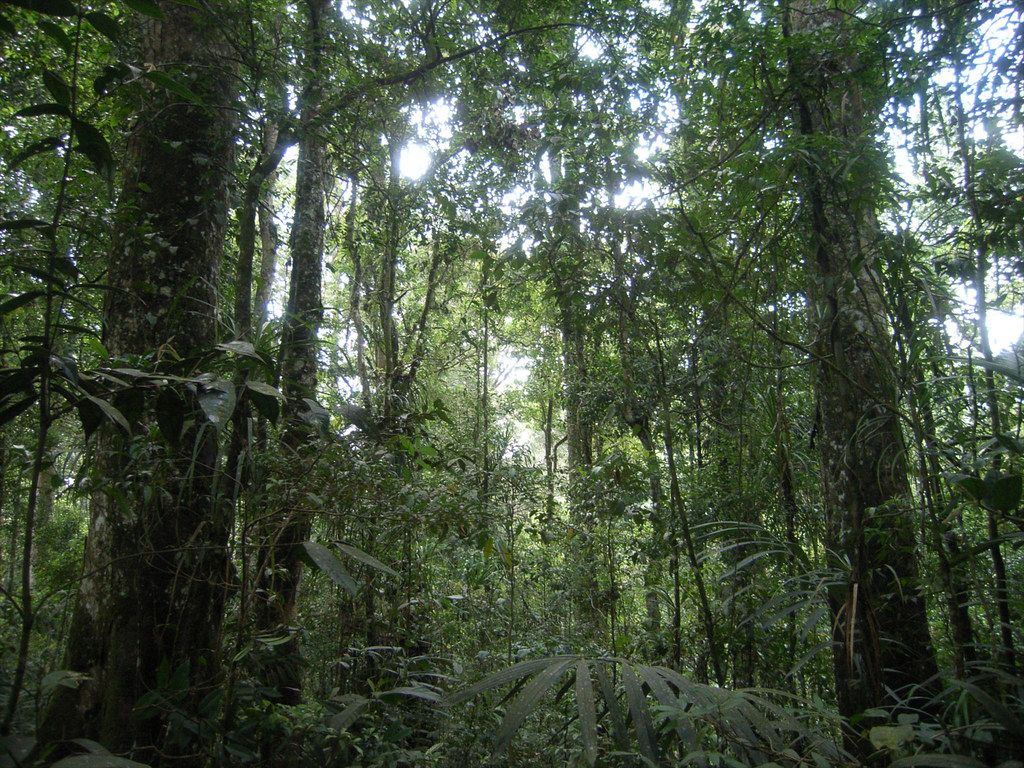
According to Mr Benjamin Loh, Sustainable Palm Oil Manager for WWF, palm oil is so popular because of its efficiency.
"Just a hectare of palm oil could replace ten times more of the amount of area needed to grow other oils.”
Palm oil uses less resources and less land than any other oil, making it theoretically the most sustainable oil to harvest of them all.
CONSEQUENCES OF A TOTAL BAN ON PALM OIL
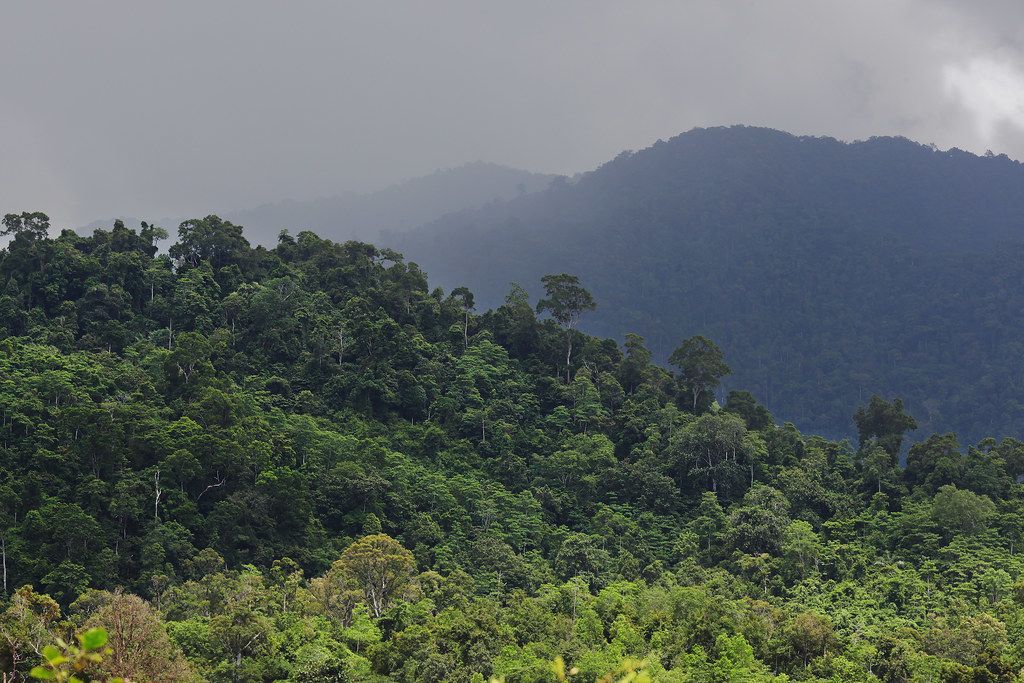
Despite the habitat destruction it has caused, a complete boycott of palm oil would have large-scale economic and environmental consequences.
Considering how such a small amount of land can produce so much more product than other oil plantations, Mr Loh says that replacing palm oil with another crop would have worse environmental consequences. Replacing palm oil with another type of oil would require more land and more resources to produce the same amount of oil. He believes this is not environmentally viable.
“We advocate for no boycott because it is better and more realistic to advocate for sustainable oil. If palm oil is taken out of the equation, it will just be replaced with another oil which will require more resources and more land."
A complete boycott of palm oil would also impact the people at the bottom of the production chain.
"A lot of the palm oil grown in Malaysia is cultivated by small farmers and growers; their livelihoods depend on palm oil. A lot of the time, if we boycott palm oil this actually has adverse effects for the farmers on the ground."
Mr Loh believes that the best way to support these local farmers is to buy sustainable palm oil products, encouraging them to produce sustainable palm oil rather than conventional palm oil.
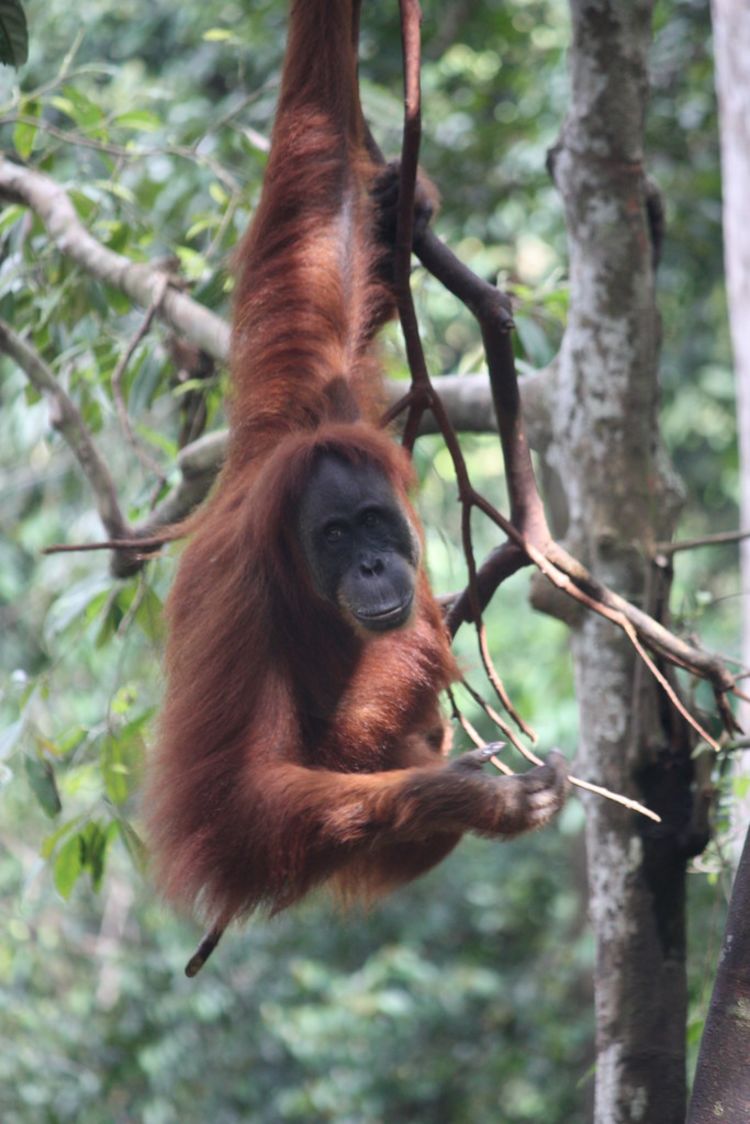
Image Credit: Flickr
Image Credit: Flickr
LAND-GRABS AND DISPLACEMENT
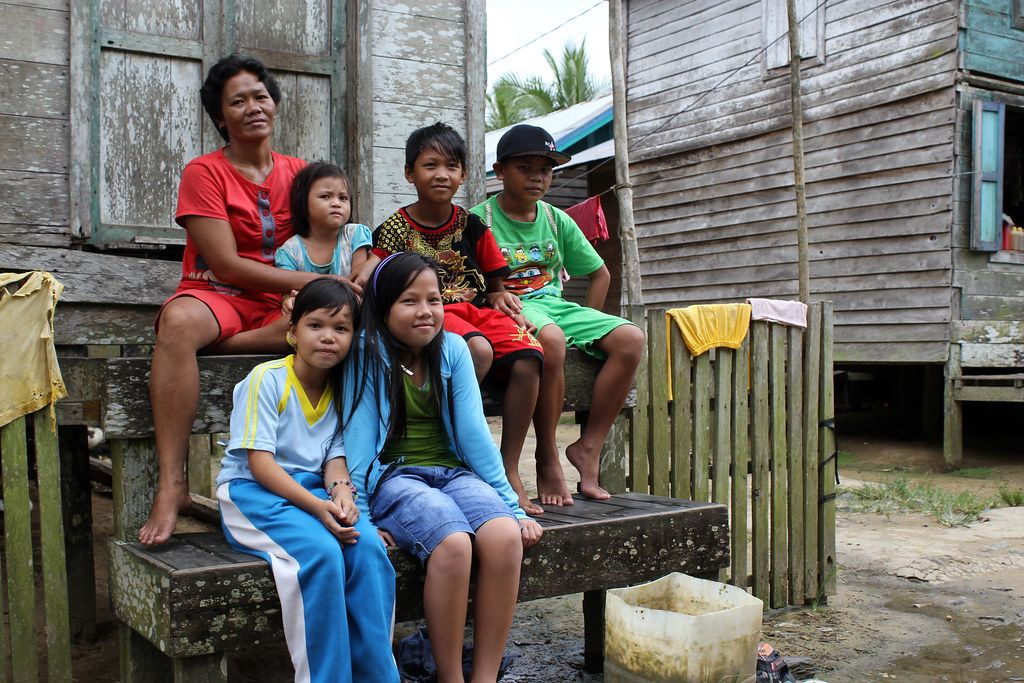
Not only does palm oil negatively impact wildlife, it also has consequences for the local people. Researcher, Dr Tania Li says that while land-grabs do occur, the term can be misleading. It has connotations of violence and the use of force. While Indonesia has been prone to use force to gain land, direct grabbing has become far less common. Now, corporations have subtler ways of getting access to the land.
Dr Li says that one way for government officials and international corporations to gain access to the land in Indonesia is through manipulation. Land rights in Indonesia are weak and land-holders are easily manipulated to believe that they are not permitted to turn down corporations. Often they sell their land for less than it is worth because they see it as better than receiving no compensation.
Sometimes land-holders are lured by the promises of palm oil companies, who say that they will build roads so that the community has better access to schools, hospitals and essential services. They do not have the resources to plant palm oil themselves, so when they are offered smallholdings by the company they see it as an opportunity to be an independent palm oil producer.
Often palm oil corporations ‘enclave’ existing settlements, meaning they are left in tact, surrounded by the palm oil plantations. Dr Li says the land may be enough to let the locals continue to farm their rubber trees or fruit as they did before. They do not see the land as scarce because they are accustomed to the forest frontier that they live on.
Later, they discover that the enclaves are too small for future generations to effectively farm. This is when they experience the ‘grab’.
“As one elder in my research site in Kalimantan explained, ‘when the company came we thought our land was as big as the sea’. But more companies came. Now his children and grandchildren are landless. They are marooned in a sea of oil palms in which they have no share.”
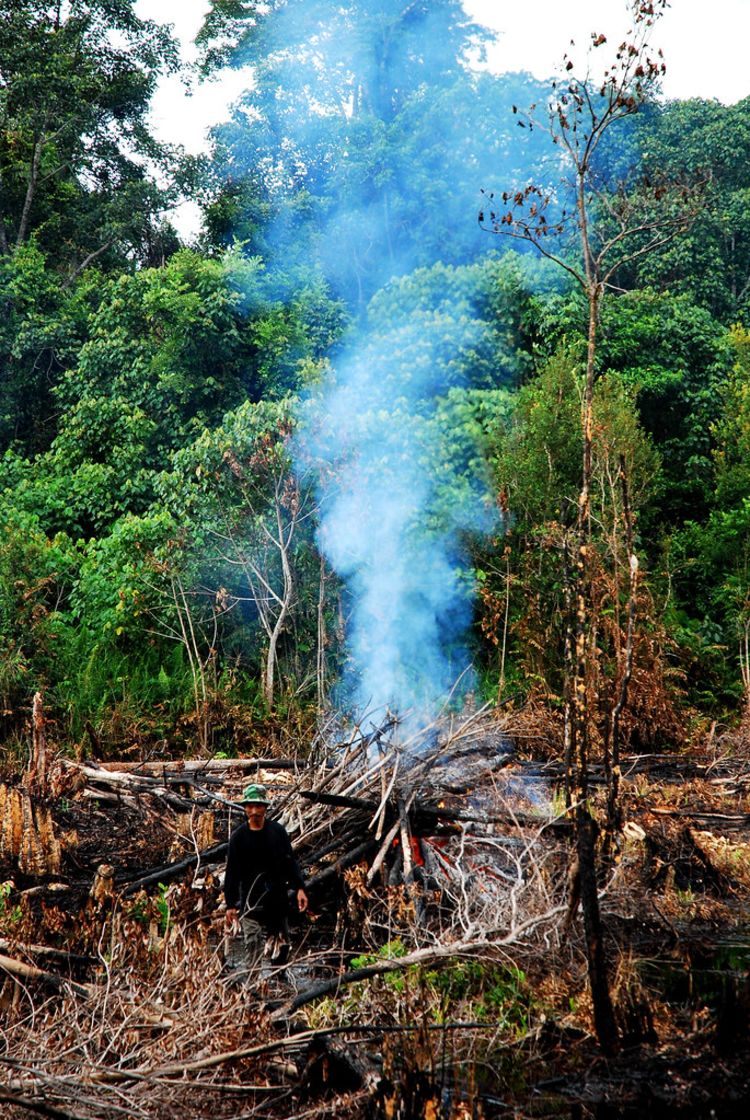
Image Credit: Flickr
Image Credit: Flickr
Dr Raffaella Commitante has a PhD in Biological Anthropology and is president of the not for profit organisation, Orangutan Conservancy. She says that the displacement of locals often occurs because of the environmental consequences of palm oil plantations.
"Once the trees are gone, there is nothing to hold the soil. In a country with monsoons and rainy seasons, when the rains come, the area gets flooded. There are mudslides that go into people’s homes and destroy them. They are left with nothing."
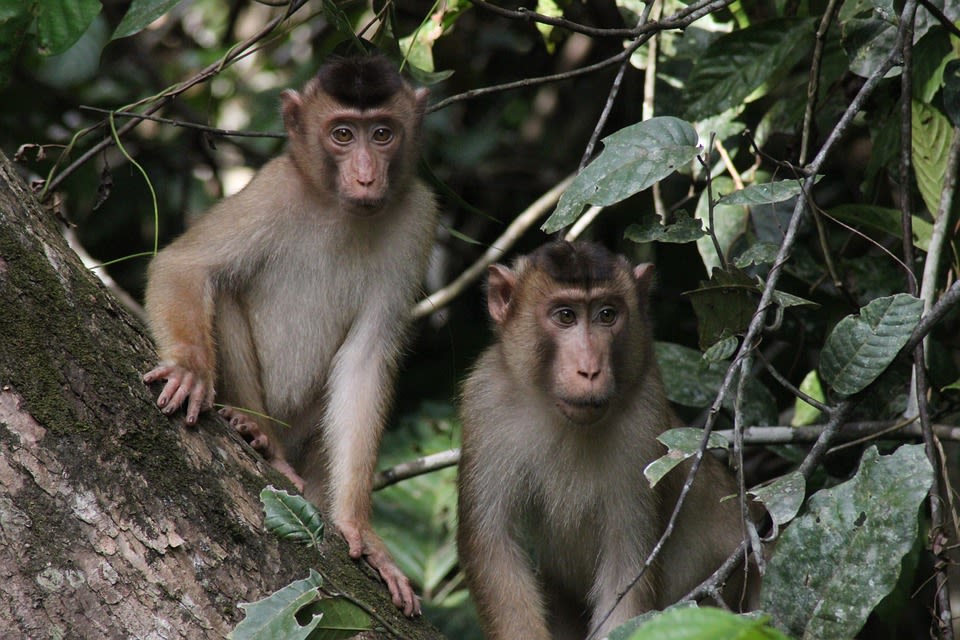
CORRUPTION
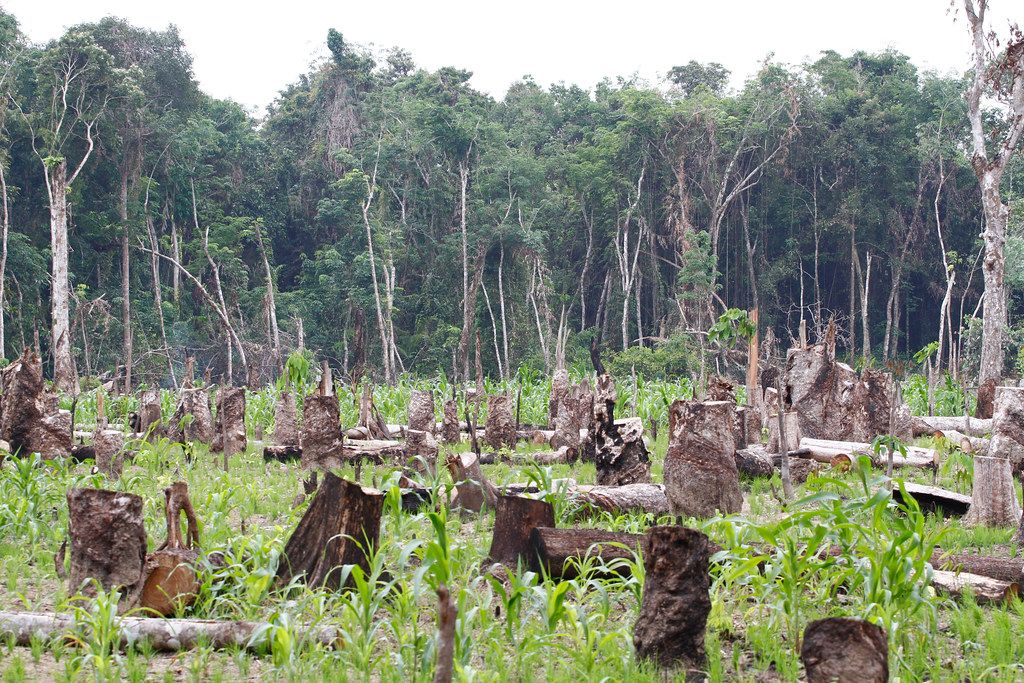
Malaysia and Indonesia are very different in their approach to palm oil. Dr Raffaella Commitante says that Malaysia still allows land-clearing for palm oil plantations, but they are more conscious of sustainability and the welfare of the local people.
"When you go into Malaysia, into the areas where this heavy duty processing has happened, you can see that the villagers have benefitted; there is more wealth that has come into the area. Sadly, in Indonesia, when a big scale operation comes in, the local population do not benefit."
She says that the conditions in Malaysian Borneo are less dire than the neighbouring side of Indonesia.
"It seems in Malaysia they are trying to up the budget that they give to conservation organisations and there is government support for it. In Indonesia there is zero government support for these organisations."
Ultimately, it comes down to government corruption and corporate greed.
"In Indonesia companies have to buy a concession as the land belongs to the government. What they do in this area is up to them, the government does not care."
The government makes profit because they are paid concessions for the land. The palm oil corporations make billions of dollars exporting the product across the globe. Palm oil is so deeply ingrained into the global market because it is in countless products, from chocolate bars to soap. Palm oil corporations make huge amounts of money from the demand for the product.
"The industry is driven by greed and you can make so much more money with even more land, that is what drives this engine. It makes it seem insurmountable to try to control because of the amount of money involved."
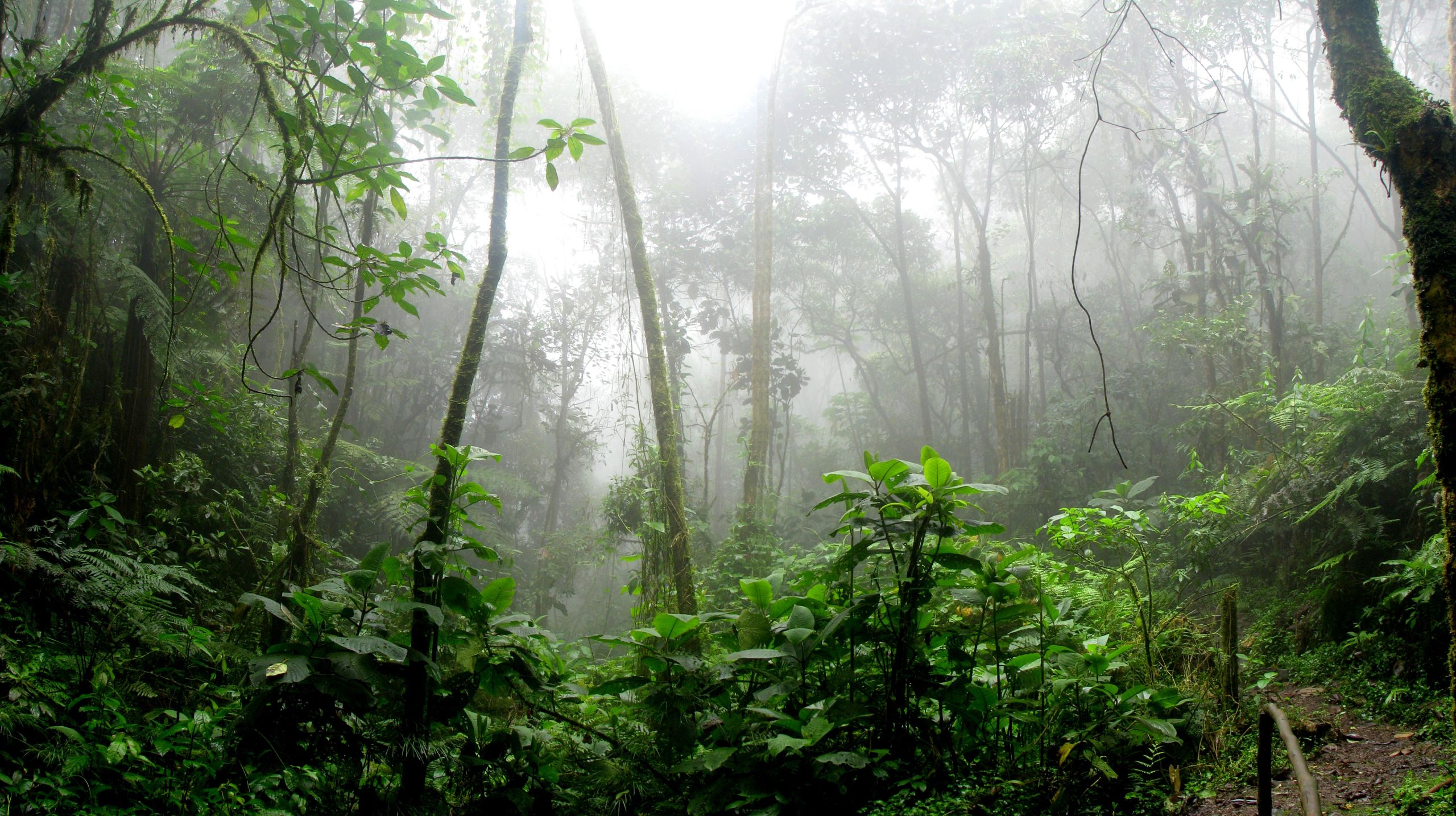
CAN PALM OIL BE CONSUMED ETHICALLY?
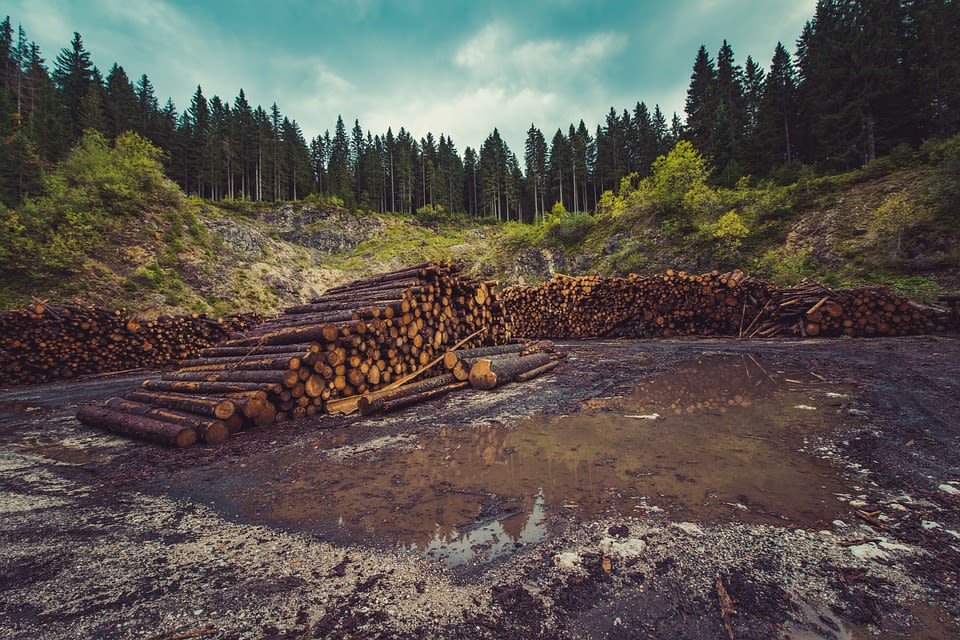
The Palm Oil Buyer’s Scorecard is a way for consumers to check if the brands they buy are sustainable. The Roundtable on Sustainable Palm Oil (RSPO) exists to help ensure that companies which are labelled ‘sustainable’ are consistently adhering to the standard of sustainability they set. Both of these measures are endorsed by Mr Loh, who says that RSPO certification prevents deforestation near threatened species’ habitats.
Still, this does not put a halt on deforestation all together. According to Dr Commitante, the original idea behind sustainability was that no new plantations would be built, and the oil would only be produced from older plantations. She says this is not the case now, with more flexible rules and governments being offered money to bend them.
“Sometimes land designation is up for sale.”
Dr Li says that even if companies did not take part in unsustainable practices, this would not address the issues of intergenerational displacement caused by years of palm oil harvesting.
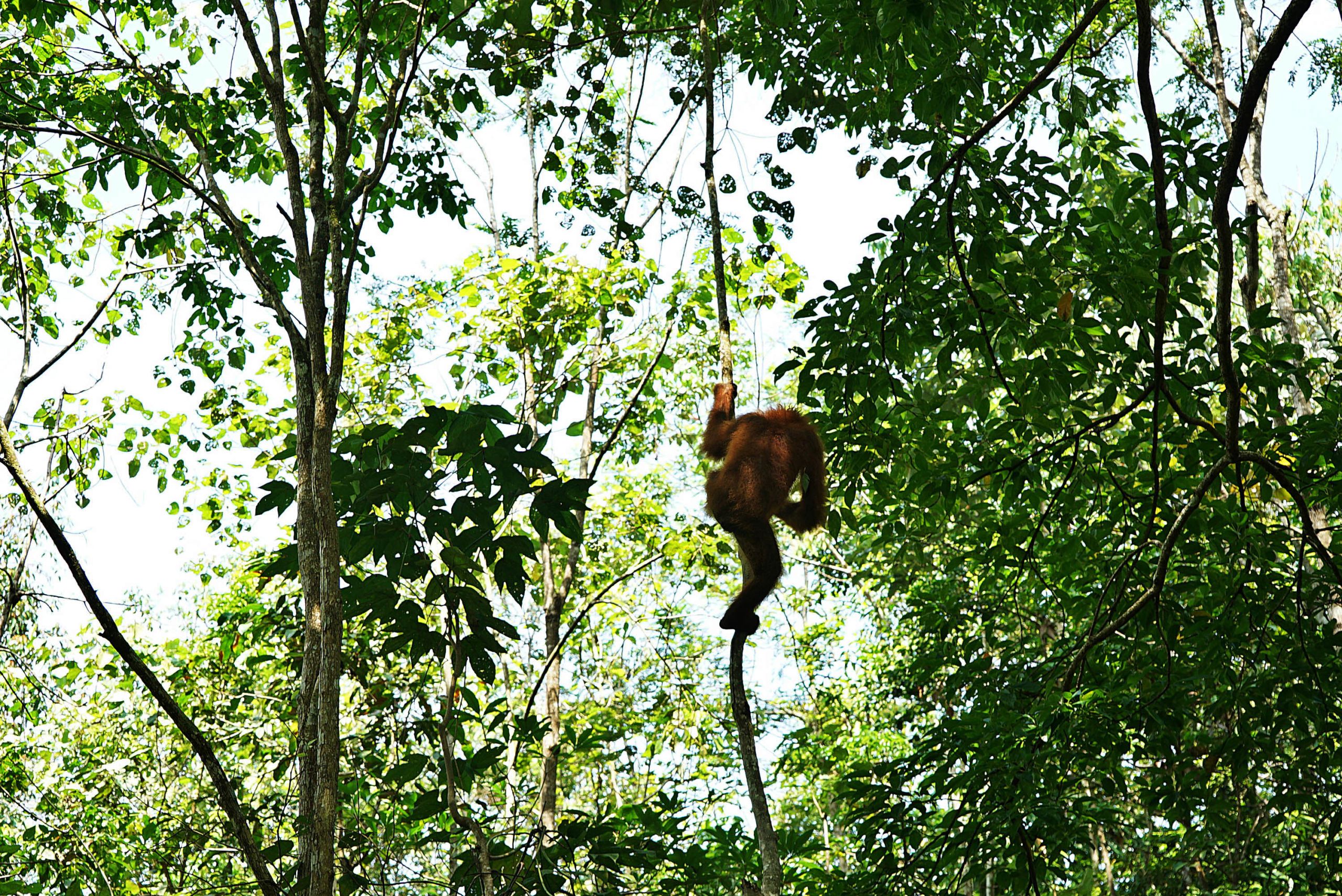
WHERE DO WE GO FROM HERE?
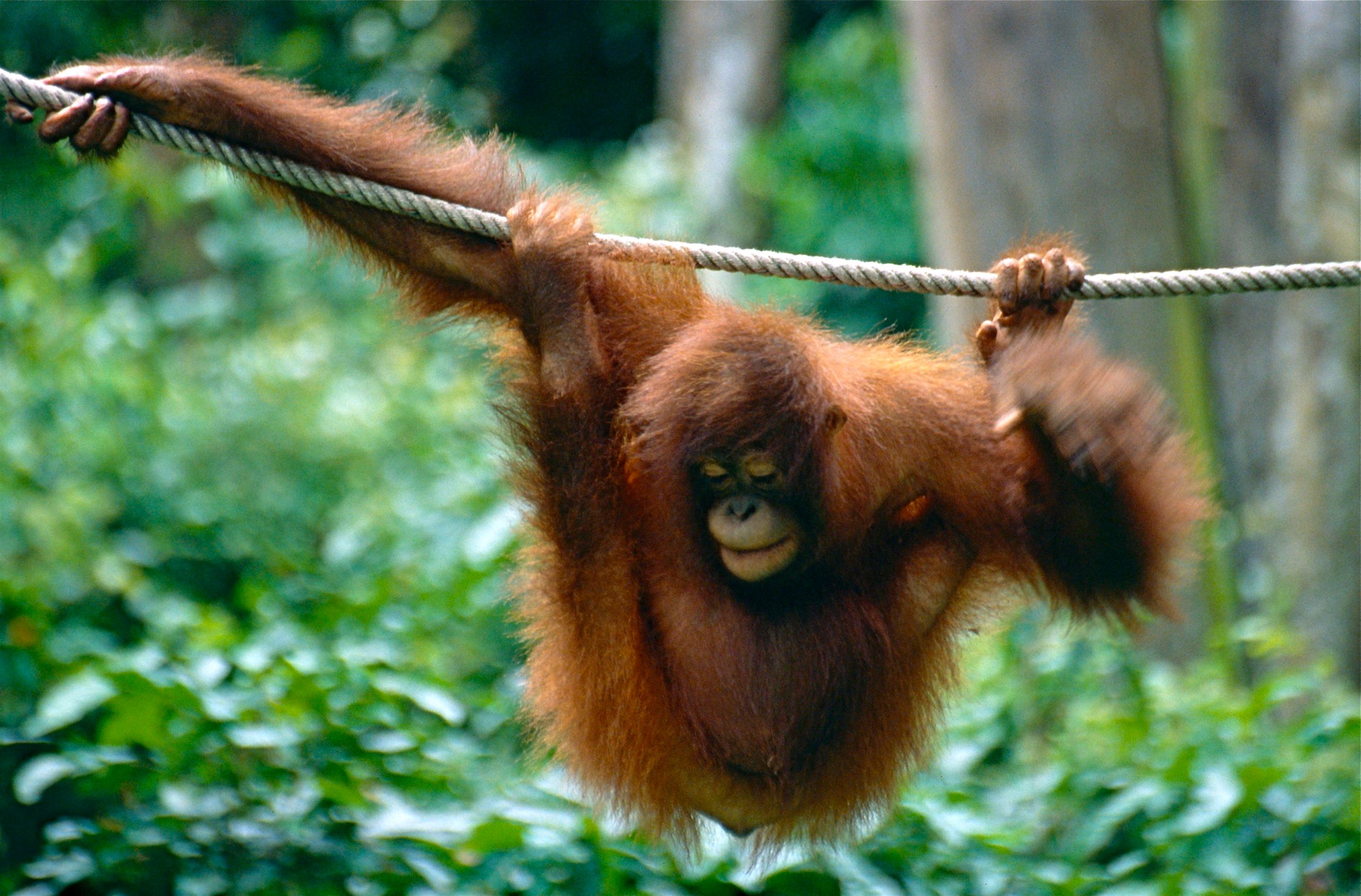
Global consumers are often disassociated with the process of what goes into their products.
While some are aware that buying palm oil prompts deforestation, most do not know what this truly means for the native animals and local people on the ground.
"People on an international level need to understand that whoever has produced that product does not have the same luxury of choice that they do. People need to start thinking about what has gone into the shampoo or chocolate bar that they have the ease and convenience to buy."
In Australia, people are slowly becoming more aware of the consequences of their buying habits. Amelie Serplet studies Environmental Management, where she has learned about habitat destruction for palm oil. She makes a conscious effort to avoid palm oil in products that she knows contain it.
“If I specifically needed something with palm oil that I cannot substitute, I will buy RSPO certified palm oil over the non-certified kind, but in general, I try to avoid palm oil as much as possible” says Amelie.
While a complete boycott is not the answer, it is clear that the path that Indonesia and Malaysia are on now is one that will inevitably lead to the destruction of a species and further displacement of local people.
"I think that a complete ban on deforestation is the only way out. In order to affect real change, it needs to be from the top down," says Dr Commitante.
With the Indonesian government currently in turmoil, it seems rare that a complete ban on deforestation will occur anytime soon.
Still Dr Commitante and WWF's Benjamin Loh agree that action at the local level can also be impactful. They say that people can be drivers for this change. If consumers want sustainable palm oil or if they do not want any new plantations, and they make that clear through their buying habits, palm oil corporations would be forced to listen.
"My vision for the future is that we won't need conservation because it will be automatic. We shouldn’t have to fight so hard to save this planet."
